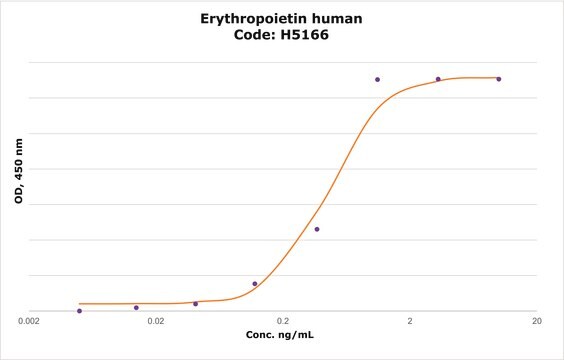V5890
VEGF121
recombinant, expressed in HEK 293 cells, suitable for cell culture
About This Item
Recommended Products
biological source
human
Quality Level
recombinant
expressed in HEK 293 cells
description
Vascular Endothelial Growth Factor 121 human
Assay
≥95% (SDS-PAGE)
form
lyophilized powder
potency
<10 ng/mL ED50
quality
endotoxin tested
mol wt
monomer 18 kDa (glycosylated)
packaging
pkg of 10 μg
pkg of 50 μg
technique(s)
cell culture | mammalian: suitable
impurities
≤1 EU/μg Endotoxin level
color
white
solubility
water: soluble
UniProt accession no.
storage temp.
−20°C
Gene Information
human ... VEGFA(7422)
General description
Biochem/physiol Actions
VEGF has also been implicated in correlation with poor prognosis in breast cancer.
In addition, VEGF is released in rheumatoid arthritis in response to TNF-α, increasing endothelial permeability and stimulating angiogenesis (formation of capillaries).
Analysis Note
Storage Class Code
11 - Combustible Solids
WGK
WGK 3
Flash Point(F)
Not applicable
Flash Point(C)
Not applicable
Certificates of Analysis (COA)
Search for Certificates of Analysis (COA) by entering the products Lot/Batch Number. Lot and Batch Numbers can be found on a product’s label following the words ‘Lot’ or ‘Batch’.
Already Own This Product?
Find documentation for the products that you have recently purchased in the Document Library.
Our team of scientists has experience in all areas of research including Life Science, Material Science, Chemical Synthesis, Chromatography, Analytical and many others.
Contact Technical Service








